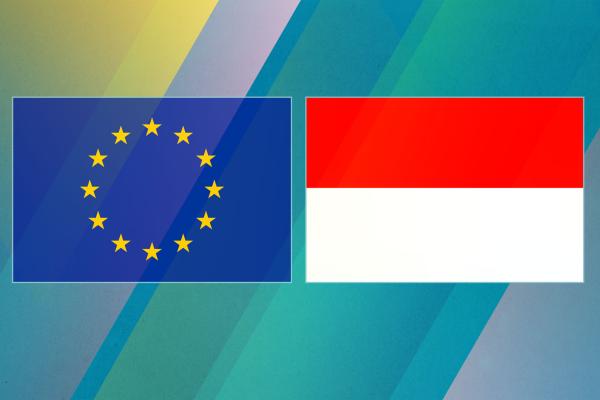- Country or region
- Indonesia
- Association of South East Asian Nations (ASEAN)
- Trade topics
- Negotiations and agreements
The EU is negotiating a Comprehensive Economic Partnership Agreement (CEPA) with Indonesia with the objective of facilitating and creating new market access, increasing trade and investment between the EU and Indonesia, and promoting sustainable development.
The EU officially launched negotiations with Indonesia on 18 July 2016. The 19th round was held in July 2024. Since then, negotiations have continued in an ad-hoc format. On 13 July 2025, European Commission President Ursula Von der Leyen and Indonesian President Prabowo Subianto reached a political agreement on the CEPA. This marks a decisive milestone towards the finalisation of the deal by Commissioner Maroš Šefčovič and Coordinating Minister Airlangga Hartarto by September 2025.
Before launching talks, the EU carried out a joint scoping exercise with Indonesia to determine the scope and the level of ambition of a future trade agreement. The exercise was successfully concluded in April 2016, and in July 2016 EU governments authorised the Commission to start negotiations.
The European Commission negotiates the FTA on behalf of all the EU Member States. The EU's Trade department regularly debriefs and consults with Member States and the European Parliament on the state of play of the negotiations.
Within the ASEAN region, the EU has already concluded agreements with Singapore and Vietnam – which entered into force in November 2019 and August 2020, respectively. A relaunch of negotiations with Thailand was announced in March 2023. Negotiations with the Philippines resumed in March 2024.
Latest news
Today in Brussels, President von der Leyen and President Prabowo Subianto of the Republic of Indonesia reached a political agreement on the Comprehensive Economic Partnership Agreement (CEPA).
In a ruling published today, the World Trade Organization (WTO) upheld the EU’s ability to take environmental and climate-based action under the Renewable Energy Directive (‘RED II’).
In a ruling published on 5 March 2024, the World Trade Organization (WTO) upheld the EU’s ability to take environmental and climate-based action under the Renewable Energy Directive (‘RED II’).



